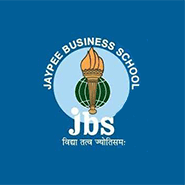Bachelor of Business Administration (BBA)
-
DurationThe BBA program typically spans 3 years, offering flexibility for working professionals.
- Eligibility
Completion of high school or equivalent.
Objectives:
Bachelors in Business Administration (BBA)
The Bachelors in Business Administration (BBA) program is designed to provide students with a strong foundation in business principles and practices. This comprehensive program covers various aspects of business management, preparing students for a wide range of careers in the business world. With a blend of theoretical knowledge and practical skills, the BBA program aims to develop competent and innovative business professionals.
Program Overview
| Program Code | Duration | Eligibility | Mode |
| 503510128 | 3 Years | 12th | Semester |
Program Objectives
- Develop Comprehensive Business Knowledge: Equip students with a broad understanding of key business concepts and functions.
- Enhance Analytical and Critical Thinking: Foster analytical and critical thinking skills for effective problem-solving and decision-making.
- Cultivate Leadership Skills: Prepare students for leadership roles by developing managerial and interpersonal skills.
- Promote Ethical and Sustainable Practices: Instill ethical values and promote sustainable business practices.
- Prepare for Global Business Challenges: Equip students with the skills and knowledge to succeed in a global business environment.
Course Structure
The BBA program is structured to provide a holistic education in business administration. The curriculum includes core courses, electives, and practical experiences:
Core Courses:
- Principles of Management: Fundamentals of management theories and practices.
- Financial Accounting: Basics of financial accounting, including preparation and analysis of financial statements.
- Marketing Management: Principles of marketing, market analysis, and strategy development.
- Business Communication: Effective communication skills in a business context.
- Human Resource Management: Overview of HR practices, employee relations, and organizational behavior.
- Business Law: Introduction to legal principles affecting business operations.
- Operations Management: Concepts and techniques for managing business operations.
- Business Economics: Understanding economic principles and their application in business.
Electives: Students can choose from a variety of electives to tailor their education to their interests and career goals. Elective options may include:
- Digital Marketing
- Entrepreneurship
- International Business
- Project Management
- Corporate Finance
- Supply Chain Management
Practical Experience:
- Internship: Gain hands-on experience through internships with reputable organizations.
- Capstone Project: Apply learned concepts to a real-world business project, demonstrating the ability to integrate and apply knowledge.






